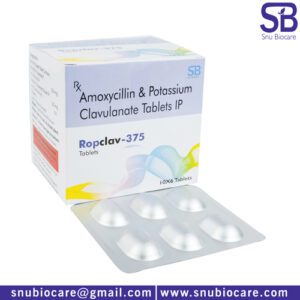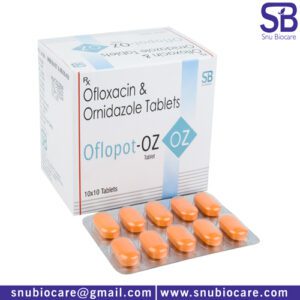Description
Deflazacort is one medicine that is a member of the corticosteroid drug class is deflazacort suspension.
Deflazacort is used to treat Duchenne muscular dystrophy (DMD; a progressive disease in which the muscles do not function properly) in adults and children 2 years of age and older. Deflazacort is in a class of medications called corticosteroids. It works by reducing inflammation (swelling) and by changing the way the immune system works.
How To Use Deflazacort Suspension
Please adhere to these guidelines to use Deflazacort suspension:
- Before using, make sure the medication is properly mixed by giving the bottle a good shake.
- To measure the proper dosage, use the measuring tool that comes with the suspension. Don’t use any old household spoon here.
- As instructed by your healthcare provider or on the label of the box, take Deflazacort suspension orally.
- To make the suspension easier to swallow, you can, if necessary, dilute it with a little water or juice.
- As directed by the provider, take the suspension with or without food.
- Never take more medication than is advised or more often than prescribed.
- Make sure you adhere to the proper pediatric dose recommendations supplied by your healthcare provider if you are administering this drug to a kid.
Benefits Of Deflazacort Suspension
The following are a few advantages of Deflazacort suspension:
Reduction of inflammation: Deflazacort suspension is effective in treating illnesses including rheumatoid arthritis, asthma, and allergies because it reduces inflammation in the body.
Immune system suppression: Those who suffer from autoimmune illnesses may find that deflazacort suspension helps suppress the immune system.
Longer half-life: Compared to other corticosteroids, deflazacort suspension has a longer half-life, which allows for less frequent use.
Convenient dose forms: Deflazacort suspension is offered in a liquid form, which is sometimes simpler to give than pills or tablets, particularly to young patients or people who have trouble swallowing drugs.
Side Effects Of Deflazacort Suspension
- Signs and symptoms of infection like fever or chills; cough; sore throat; pain or trouble passing urine
- slow growth in children (if used for longer periods of time)
- swelling of ankles, feet
- trouble sleeping
- weak bones
- allergic reactions like skin rash, itching or hives, swelling of the face, lips, or tongue
- changes in emotions or moods
- eye pain
- signs and symptoms of high blood sugar such as being more thirsty or hungry or having to urinate more than normal. You may also feel very tired or have blurry vision.
Precautions Of Deflazacort Suspension
- If you have an allergy to any of the substances in deflazacort tablets or suspension, notify your doctor and pharmacist. If you have an allergy to any other medications, let them know. Get an ingredient list from your pharmacist.
- Inform your physician and pharmacist about any additional prescription and over-the-counter drugs, vitamins, dietary supplements, and herbal remedies you now take or intend to use. Don’t forget to bring up any of these: Other nonsteroidal anti-inflammatory medications, such as aspirin Your doctor might need to carefully monitor you for any negative effects or adjust the dosages of your medications. Tell your doctor about all the drugs you take, including ones that are not on this list, as many other medications may also interact with deflazacort.
- Inform your physician if you suffer from or have ever had any of the following conditions: myasthenia gravis, which is characterized by weak muscles; osteoporosis, which is characterized by weak bones that break easily; pheochromocytoma, which is a tumour on a small gland near the kidneys; cataracts, which cloud the lens of the eye; glaucoma, an eye disease; high blood pressure; heart failure; a recent heart attack; diabetes; emotional problems, depression, or other mental illnesses; hepatitis B (HBV, a virus that infects the liver and can cause severe liver damage); herpes eye infection, which causes a sore on the eyelid or surface of the eye; glaucoma, an eye disease; cataracts, which cause cloud the lens of the eye; glaucoma, an eye disease; high blood pressure; heart failure; a recent heart attack; diabetes; a recent heart attack; and a recent heart attack.
- Additionally, let your doctor know if you have any untreated viral, bacterial, fungal, or parasite infections elsewhere in your body.
- Inform your physician if you are nursing a baby, intend to get pregnant, or are already pregnant. Contact your physician if you become pregnant while using deflazacort.
- Inform the medical professional or dentist that you are taking deflazacort if you are undergoing surgery, including dental surgery.
- See your doctor if there are any immunizations you should get. Before starting deflazacort medication, it’s critical to ensure you have received all vaccinations recommended for your age. Avoid being immunized while undergoing treatment without first seeing your physician.
- You need to be aware that deflazacort may lessen your immunity to infections and may stop you from experiencing symptoms if you do. When using this medication, avoid contact with sick persons and wash your hands frequently. Keep a safe distance from anyone who has measles or chicken pox. If you suspect you may have come into contact with someone who has measles or chickenpox, give your doctor a call right away.












